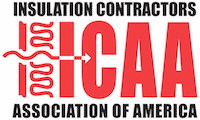Are you eligible for energy tax credits?
Part of the attraction of green projects is, in addition to the environmental benefits, the cost savings that comes with more efficient properties and components. An important part of the Return on Investment (ROI) for green projects includes the tax benefits of the project. It is important to note that several of these tax credits will expire or modified at the end of 2010. A better understanding of these credits will assist businesses, their clients, and property owners in making the best project decisions.There are several distinct types of federal and state energy-related tax credits. There are those which apply to existing primary residences and some renewable energy credits which apply to both existing and new construction. The federal residential energy improvement tax credits expire in 2010. Most of the renewable energy tax credits are not set to expire until 2016. However, there are some special treatments for the commercial renewable energy credits that are available only through 2010. State energy-related tax credits vary by state.
Residential energy improvements can be claimed by taxpayers for existing primary residences for several types of projects. Most of these items should come with manufacturers’ certification that the criterion has been met. Credits for Geothermal Heat Pumps
and Small Wind Turbines can be claimed for new and existing homes for both principal residences and secondary homes (but not rental properties). These items are eligible for a 30% credit with no upper limit on the credit. Geothermal Heat Pumps must meet specific technical criteria and the credit can include installation costs. Small Wind Turbines must have a capacity of less than 100 kilowatts and the credit can include installation costs. Solar energy systems are eligible for 30% of costs. Solar water heaters must be certified and provide at least half the energy to heat the building’s water. For residential properties the solar energy credit applies to new and existing construction for principal residences only. Fuel cells are eligible for 30% of costs up to $500 per.5 Kilowatt of power capacity.
There are several incentives for businesses to pursue renewable energy projects. Business renewable energy projects can be structured so that some of the credits and government support can be used to finance transactions. The federal government offers a business tax credit for the previously listed renewable energy technologies and these credits are generally available through 2016. However, through 2010, businesses can apply for a grant in lieu of the tax credit for certain projects that are started before the end of 2010. This can sometimes result in a quicker return of the money from the government. The federal business tax credit is 30% for solar, fuels cells (limit $1,500 per.5 kW), and small wind (limit $200 per kW) and 10% for geothermal.Tax credits and incentives are an important consideration when looking at a project. A good understanding of the credits will help you and your clients make the proper decision on whether to pursue a project for financial reasons.
Contact Metro Garage Door Repair today to find out is you could be eligible for a tax credit.


